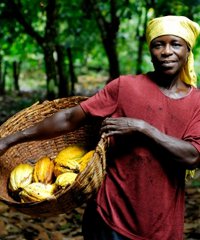An increased body of evidence
shows that climatic variability is adversely affecting Ghana’s natural
resources such as land, water, forests and vegetation, as well as human
capital.
Climate change is, therefore, expected to
have significant impact on key resource-dependant sectors, such as
agriculture and food production, and consequently on food security.
Food security is under threat from unpredictable changes in rainfall and more frequent extreme weather.
FOOD INSECURITY
Recent statistics show that a total of
1.2 million Ghanaians are with limited access to sufficient and
nutritious food throughout the year, whiles another 2 million are at
risk or becoming food insecure during the lean season or at the onset of
a natural or man-made disaster.>>> continue >>>






